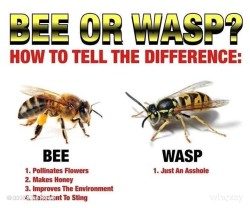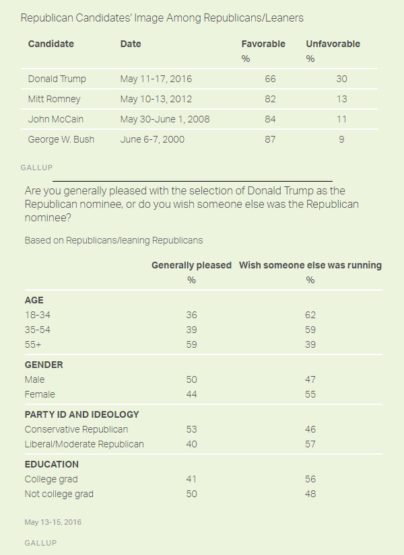Monthly Archives: May 2016
So, in the event that you have been living under a rock for the last couple of weeks, you have read that Silicon Valley icon Peter Thiel was financing former wrestler and probable 2020 Republican presidental nominee Hulk Hogan’s lawsuit against Gawker, the verdict of which was a whopping $140,000,000. I thought this was an interesting piece of trivia. Apparently, though, it’s the End of Free Speech as we know it! Or, at the very least, concerning. As a matter of free speech.
The nature of the concern is that such litigation allows the wealthy to abuse the legal system to squelch free speech. One similar story, wherein Idaho millionaire Frank VanderSloot filed a frivolous lawsuit against Mother Jones that ended up costing the liberal publication and its insurers millions of dollars just to defend itself. That case is concerning because, as any physician (or physician’s spouse) can tell you, you can lose a lawsuit even if you win it, just by ending up in court. That’s certainly a concern, but I see very little that’s particularly alarming in the Gawker story itself, assuming that we’re okay with our litigious culture in the first place.
Whereas VanderSloot sued on his own behalf, Thiel helped others finance lawsuits. Is that a problem? Litigation critic Walter Olson thinks so:
Olson argues that if you went back a century or two and talked to British or American legal scholars, “they’d say of course these things would be used by the rich and powerful if you allowed them.” Under doctrines called champerty and maintenance, the law used to bar unrelated third parties from paying someone else to engage in litigation and financing a lawsuit in exchange for a share of the damages.
But states have loosened these laws over the past 50 years, in part because lawyers began to see easy access to the courts as being in the public interest. This was driven in part by the rise of public interest litigation — think, for example, of an environmental group finding a third-party plaintiff to sue a company to stop an environmentally sensitive development project.
“Awards are constantly being given to projects in which some wealthy person decides that someone needs to be sued, finds someone who has standing as a plaintiff, and generously funds their litigation,” Olson says.
Sounds ominous. But what is the alternative? The alternative is that nobody but the plaintiff can fund lawsuits. The environmental litigation is one example, but another would be the ACLU. Apart from contingency lawsuits, it would limit access to the courts to those with deep pockets. Now, maybe it is the case that we should rely on lawyers to filter out cases by way of their willingness to take them on contingency, but what a lawyer is willing to spend on a contingency case is likely to be considerably less than what they would spend if they had a benefactor. Again, access to the courts would be even more restricted by money than it already is.
I don’t honestly have very strong feelings one way or the other on this. Apart from Burt Likko and a few other folks around here aside, plaintiff attorneys mostly exist in our life as a predator in the shadows. Sonny Bunch has a list of such arrangements that liberals should like, and I am pretty pleased with the results of some of them. The argument in favor of these tends to be that David needs a Goliath to battle Goliath. In any event, the law is the law, and whether we agree with them or not there are reasons that we have these laws on the books. They are not to protect the Peter Thiels of the world. Maybe that should change.
 Thiel may not be a good dude, but Gawker’s own history here is highly relevant. They do what they are accused of doing here, and not just to Hulk Hogan. Should they be allowed to under the umbrella of free speech? Should they not be allowed to under the umbrella of a right to privacy? Is a sex video with a celebrity “news”? What about a video in which a woman claims she was being raped? These are good questions that have nothing to do with Peter Thiel, except insofar as he made sure that Gawker wasn’t going to be able to spend plaintiffs into the ground or intimidate contingency lawyers with its largesse.
Thiel may not be a good dude, but Gawker’s own history here is highly relevant. They do what they are accused of doing here, and not just to Hulk Hogan. Should they be allowed to under the umbrella of free speech? Should they not be allowed to under the umbrella of a right to privacy? Is a sex video with a celebrity “news”? What about a video in which a woman claims she was being raped? These are good questions that have nothing to do with Peter Thiel, except insofar as he made sure that Gawker wasn’t going to be able to spend plaintiffs into the ground or intimidate contingency lawyers with its largesse.
I don’t know whether Thiel was justifying in doing what he did here. It does seem clear to me that whether this can be considered “philantropic” or not, he is doing this for his own sense of justice. If he were merely looking to intimidate, nobody would have had to dig to find out he was behind it because he would have wanted everyone to know about it. This was in retaliation for Gawker having officially outed him. It’s been said that Thiel’s closet was a glass one, or that he had no right to be in a closet to begin with. Silicon Valley is pretty liberal, after all! Thiel in turn claims that this sort of thing hurt him with overseas investors who are less tolerant, and that he had a right to his privacy. He obviously didn’t have a legal right to his privacy, since he didn’t or couldn’t sue for his outing, but some degree of pissed-offedness seems understandable. Some of the other cases he’s pursuing, including suing individual lawyers, do are discomforting.
At the end of the day, though, the Hogan’s lawsuit that threatens to destroy Gawker was not frivolous. He won. Maybe we think the jury got it wrong, or that the basis on which he one is a law that needs to be changed. Gawker lost in good part because it felt invulnerable precisely because it believed it was the Goliath and that it could act with impugnity. Anger at Thiel for funding the successful lawsuits are hard to separate from anger that Hogan got his day in court to begin with.
 The origin of the Animaniacs! When people are expressing weariness on Twitter, I sometimes send them a link to an Animaniacs sketch. It’s hard to watch Animaniacs and stay glum. At least it is for me.
The origin of the Animaniacs! When people are expressing weariness on Twitter, I sometimes send them a link to an Animaniacs sketch. It’s hard to watch Animaniacs and stay glum. At least it is for me.
It’s not just for liberals! Pascal Emmanuel-Gobry peeked at how the veil of ignorance justifies conservative position.
As we stare down the possibility of a Trump Presidency, maybe – just maybe – we shouldn’t have made the presidency as powerful as we have.
I am not at all surprised by this. Girls be mean.
Noah Berlatsky argues that superheroes are less modern myths and more melodramas. I think this is true in the case of classic comics, though the medium has transformed into something else (or, more accurately, many things).
I kind of shrugged off the latest Captain America twist (I mean, obviously, it’s going to be some sort of hypnosis where Steve was really being Steve up until now), but Jessica Plummer argues pretty convincingly that even accounting for the fact it’s going to be a gimmick, it matters.
This is no surprise: There’s a peer effect when it comes to teenage pregnancy. Of course, that’s a double-edged sword. Lower teenage pregnancies is a good thing, but too much stigma and abortion (for wronger-than-usual reasons, even) starts to look really attractive.
Calaveras High School (CA) are the Redskins no more! Now they are… well… nothing. That’s dumb. Otters would work for a California school!
Peak Sonny Bunch: He makes the case for the White Walkers.
This guy reminds me a bit of how much I miss the Natural Law Party right now. At least transcendental meditation as the solution to all of our ills is a mostly-harmless delusion.
A Katie Couric documentary rather deceptively edited an interview with gun control opponents, a conservative website “claims” (and also, actually, demonstrates).
Perhaps more evidence that people answering polls are not actually answering the question asked, partisan fact gaps diminish when money is on the line.
Zombie beavers may be the stuff of movies, but zombie cockroaches controlled by wasps are apparently real.
Priceonomics has an article on what words and inflections correlate with good and bad first dates.
Fast Company looks at skyscrapers and how they might influence our perspective of space.
There was a discussion on twitter recently between Lyman Stone and Noah Smith about kindness and mutual respect (or something alone those. Smith said nobody does it better than Japan. Stone said the South, to which Smith said that doesn’t apply racism. Stone asked if Smith really wanted to go that route with Japan in the conversation. I cannot link to the thread because Smith deleted his part of it.
Anyway, I thought of that when I watched this:
Of course, that’s China instead of Japan, but they all look alike, right? Hur hur. More seriously, it’s a good reminder that even in the age of Trump, we regard racism on a curve and in a rather comparative manner.
Interestingly enough, that commercial appears to be ripped off an Italian commercial, which goes in the opposite direction:
Though one is from Asia, and the other from Europe, they are both in-keeping with racial stereotypes we have over here. The latter cuts more viscerally into racial fears within HBD communities within the US, while the Chinese one makes little sense by those standards. The former is in-keeping with more traditional racist stereotypes, though with Asian as the “default race” instead of white.
If you’re interested in diving into the fever swamp, the second video comes from Uncle Steve’s blog. You can also read the YouTube comments, which are what they always are.
 I don’t care very much for the framing of this article, but I genuinely do worry what happens if, as whites become minorities, they vote in minority patterns. We already see it in cities where they are outnumbered.
I don’t care very much for the framing of this article, but I genuinely do worry what happens if, as whites become minorities, they vote in minority patterns. We already see it in cities where they are outnumbered.
I am inclined towards agreeing with this. It was important to put it out there, but once out there, all retweeting does is amplify it. Relatedly, this sort of explains some of the people who have shown up on my Twitter feed.
Maybe Lindsay Graham isn’t a sellout after all? To be honest, that’s the biggest one that has thrown me so far.
Nick Cohen takes radical tourists to task, with regard to their props to Venezuela.
I knew that Brazil’s interim president was controversial, but a Satanist?
Meanwhile, a king lies in wait… with the support of his would-be people!
There is a lesson here.
I’ll bet you’ve always wanted to know which cities were best equipped for the Zombie Apocalypse. Does New York City have to win at everything? Sigh…
Brad Wilcox and Nicholas Wolfinger look at The Latino Marriage Paradox: Given that Latino’s are in general poorer than whites, why are their family formation statistics similar?
With this is a cheery thought, from Elijah Wood.
The stereotypes seem to have changed from the ones in this article, from Republicans as Rich to Republicans as backwards losers. Interesting stuff all the same. Both parties, it turns out, contain multitudes.
The New York Times editorial board is recognizing that we’re pumping out too many college graduates for the jobs available, and then has a series of largely unrelated and counterproductive proposals on how to address it.
I give this article mega-points for its title, and it’s interesting to boot!
Chris Beck writes of the “law school prices [for] blue collar skills” in culinary schools.
Arthur Books wants to get America moving again! To places where there are jobs and opportunity available.
I have responded to the bulk of Aaron’s well-written piece on the Trump insurgency elsewhere, so I will not be rehashing most of it here. Rather, I wanted to focus on one of the arguments within:
Conservatives believe, rightly or wrongly it doesn’t matter, that the media is biased against them. This shows up in such ways as: how any opposition to the ACA is painted as racist; accusations that even when the job they have is legislating, they aren’t governing; or, claims that if the branches of government that the Republicans have just taken back use the checks and balances that the constitution provides them, it must be because they aren’t serious senators. Couple this with accusations that every Republican running for President is akin to Hitler, and that opposition to amnesty for illegal immigrants being solely motivated by racism. (A claim supported by the one of the party elite no less!)
Some of what I have to say was articulated by Trizzlor in the comments:
The problem is when a party collectively says “Oh you don’t like me because I’m [BLANK], well let me show you how [BLANK] I can be” they are collectively doomed. And that holds when BLANK is racism or when BLANK is SJW privilege checking. There’s a reason civil rights activists put on their Sunday best and went to church before staging a sit in: an insurgency is effective when it highlights the commonalities, not the differences.
 I would, however, take it a step further. What this reasoning suggests to me is that at the end of the day, blank is what the speaker wants to be. And that, to a degree, the only reason not to be blank is the degree of social condemnation that comes with it. This is, controlling for blank, quite reasonable. If I want to blank, but blank makes people dislike me, then I might blank anyway if people are going to accuse me of blanking no matter what I do. Why not?
I would, however, take it a step further. What this reasoning suggests to me is that at the end of the day, blank is what the speaker wants to be. And that, to a degree, the only reason not to be blank is the degree of social condemnation that comes with it. This is, controlling for blank, quite reasonable. If I want to blank, but blank makes people dislike me, then I might blank anyway if people are going to accuse me of blanking no matter what I do. Why not?
When blank is being racist, though, that ought to cause incur a pause. If your response to being called a racist no matter what you do is to become racist, that says something about you. It demonstrates to me that either (a) you really want to be a racist but are merely held back by social convention, or (b) you are cool being racist if it pisses the right people off. Neither of these is a flattering look, perceptively or morally. If we assume, at any rate, that racism is bad.
Now, if you’re not a liberal, and maybe if you are, being called a racist is something you’re likely to be confronted with. Regardless of what you say or do. It’s something that’s out there. Often, it’s because many on the left lack any sense of perspective or nuance. They find a racial dimension to whatever your view is, and they pounce on it. It’s just how they view the world. Not without reason, of course, but taken to excess. For others it is more blatantly a vehicle for self-righteousness, or a way to win an argument. A lot of people on the left have an awful lot invested in the notion of their enlightened superiority on such matters.
How we respond to this matters. One way of doing so, of course, would be simply never to dissent from their perspective on any issue which could be construed as a racial one (which is virtually any issue). If you’re conservative – and even if you’re not – that’s not a tenable position. It’s also not an intellectually honest one, for the most part. But the question that we ought to ask ourselves is not whether or not we will be accused of racism, but whether (a) the charge will stick, and (b) the charge is actually justified. We want to avoid situations where (a) occurs as a practical and political matter. But really, though, the most aggressive accusers end up doing most of the work for you in this regard. When everything is racist, then virtually nothing is, except to the most devoted. We want to avoid (b) as a moral matter, if we agree that racism is undesirable.
Now, defining racism is hard. I’m honestly not sure how to do it myself. In my view, it can be defined extremely broadly to the point where we are all guilty and even very defensible policy qualifies, or we can define it narrowly and with a great moral weight. I don’t know which one is correct, though I tend to approach accusations of racism according to defensibility. Sometimes something can, in my view, be called racist with accuracy, and yet still be the right course of action. (This comes up a lot with immigration.) I am rarely called racist myself, though things I believe are called racist with varying degrees of frequency. The good and proper response to this is to determine whether it’s not racist, whether it may be racist but is defensible anyway, or whether it is racist and I need to re-evaluate the whole thing. The good and proper response is not, and cannot be, “You want racist? I will show you racist!”
If you’re supporting the guy who calls Mexicans rapists, that’s on you. Not them. And except insofar as you are being “true to yourself” by doing so, you’re more or less playing the role that many of your adversaries want you to play anyway. Especially those in the last aforementioned category: The ones that have a strong investment in their enlightened superiority on racial matters. Most cynically, many of them really do want you to take the most extreme position possible. I thought myself cynical, but even I’ve been surprised by how many people on the left seem to relish the things that Trump says and does because he proves them right. He takes what they see and puts it out there for everybody else to see. Then they further accuse anti-Trump people on the right of only being anti-Trump on that basis. For the least earnest, most divisive sort, this is catnip.
To go in the other direction, let’s talk about anti-Trump protesters. Specifically, let’s talk about the anti-Trump protesters in New Mexico who were throwing rocks and waving the Mexican flag. Now, waving the Mexican flag is not really comparable to hurling either rocks or racist insults, but it is in the eyes of many divisive. It also plays into stereotypes about immigrants, Mexican-Americans, and anti-Trump people of being unpatriotic. It’s somewhat detrimental to the cause. This was noticed, as it happens, by Mexican-Americans:
Observers said that during the anti-Proposition 187 rallies of 1994, the flying of the Mexican flag may have increased support for the initiative, which would have denied public services to immigrants here illegally. It was passed by voters but overturned by the courts.
Protesters carrying Mexican flags during the 2006 protests also sparked debate, though as those protests continued, there were fewer Mexican flags and more American flags. That happened in part because Spanish-language DJs who promoted the demonstration during their radio shows urged participants to carry American flags to show their patriotism.
“If we want to live here, we want to demonstrate that we love this country and we love the American flag,” DJ Eddie “El Piolin” Sotelo said at the time.
More recently, during the Comprehensive Immigration Reform and DREAM debates, the advocates made the switch and it seemed to correspond with a change in public perceptions on the debate. There was a good article about this in Slate, but unfortunately I can’t find it. Whether they should have had to do this or not, it was nonetheless good for their movement that they didn’t decide “Haters gonna hate.”
Some will, of course, just as some liberals will believe that anyone that disagrees with them on a broad buffet of issues are racist. But haters aren’t the target audience. First and foremost, they like you good and hateworthy.
1/ my tardy, obligatory take on kindergarten Thermidor – this is about updating the criteria for counter-revolutionaries, not free speech
— Jonathan Zhou (@Zhou___) May 23, 2016
2/ I see some on the centre-right express sympathy for our petit Robespierre – he would guillotine you in an instant, why bother
— Jonathan Zhou (@Zhou___) May 23, 2016
3/ the reigning purge-manuals specify that you can only harass and defame people for being sexist or racist, not classist
— Jonathan Zhou (@Zhou___) May 23, 2016
4/ they simply want to add "classist" to that list, perhaps even on top of it https://t.co/MINBO8Vb6z
— Jonathan Zhou (@Zhou___) May 23, 2016
Now we all did what we could do.
Donald Trump, on stage at the first Republican convention for the ‘16 election, was considered a joke, something to make fun of regarding how bad the choices were for the conservative branch of American politics. Against all predictions, he ended up sweeping aside the other nominees while rushing headlong into the nomination. As he got closer and closer, more and more pundits predicted that groups such as #NeverTrump would prevail, saving all of us from the monstrous idea that is Trump.
But Republicans didn’t seem to want to be saved from Trump, and indeed to have been relishing his rise in the fight against Clinton that seems to be coming this fall. They pulled a collective Jack Move, and it seems to be working for them. Don’t get me wrong, there are still plenty of conservatives who want nothing to do with Trumpism, including a few of OT’s writers and commenters.
But the Republican Party doesn’t seem to want those voters anymore; it may be happier without them. For they are the voters who brought out McCain and Romney, two candidates that the Democratic party and its friends in the media were in many ways designed to defeat. The candidates that the establishment wing was trotting out this year, Bush and Cruz, would have been destroyed in a similar vein. And when presented with a possible choice that obviously set off the nation’s elite, with cries of “How Could They!” and “He’s Vulgar!” – the right jumped at the chance, swarming en masse toward the billionaire with the funny/cheesy hat. Why? Why did they feel that they needed to do this? Well, let’s take a look.
 Now, first, define Republicans. Are we including the 60% that voted against him? Are we including the 35% or so that support him only “with reservations”, the 15% who are only supporting him because he’s the nominee? The additional 15% that so far say they won’t support him? Or are we excluding them? Are we also excluding the last two Republican presidents as well? Are we excluding the last nominee? We can define deciding to vote for him only because he is the nominee as “relishing his rise” if we want, and can say that conservatives and Republicans love him by excluding the large chunk that doesn’t, but none of that removes the fact that he is the weakest nominee in terms of party support that we’ve ever seen. While those that still oppose him in the general election are the distinct minority, issues persist. He won, but mostly by wearing down the opposition. Now a win is a win, and he evidently has the support of the establishment and most of the party going into November, but past that we’ll have to see where things stand.
Now, first, define Republicans. Are we including the 60% that voted against him? Are we including the 35% or so that support him only “with reservations”, the 15% who are only supporting him because he’s the nominee? The additional 15% that so far say they won’t support him? Or are we excluding them? Are we also excluding the last two Republican presidents as well? Are we excluding the last nominee? We can define deciding to vote for him only because he is the nominee as “relishing his rise” if we want, and can say that conservatives and Republicans love him by excluding the large chunk that doesn’t, but none of that removes the fact that he is the weakest nominee in terms of party support that we’ve ever seen. While those that still oppose him in the general election are the distinct minority, issues persist. He won, but mostly by wearing down the opposition. Now a win is a win, and he evidently has the support of the establishment and most of the party going into November, but past that we’ll have to see where things stand.
As things stand, Trump has not yet demonstrated any greater capacity to win than Romney or McCain to win yet. But we can set that aside, because electability isn’t entirely the point anyway. There are two dimensions at work here: Electoral prospects and national good.
Electorally, it remains my belief that Trump is not going to win. I fear what would happen if he did, but I’m not especially worried yet that it’s likely to happen. That will change if Trump can start regularly polling above 47% (depending on how close we are to election day). I just don’t think he’s going to be able to get the women votes he’s going to need. But I am and have been pretty firm in my belief that the greater threat of Trumpism isn’t that it’ll lose, but that it will eventually win. I’m not under any illusions that the party needs to appeal to me and mine in order to win. I’m worried about a party that takes the Republican coalition and doubles down on the white identity and wins.
 The Republican voters are within their rights to embrace all sorts of ugliness. I am not obliged to be respectful of their decision to do so, however. Nor of muting my opposition to it. Right now this is about my party, but the closer they come to the presidency the more it becomes about the country. This isn’t really about trade policy. Nor is it even about the anti-immigration view. It’s about an embrace of European right-wing sensibilities, combined with ugly movements in our country’s history, more or less untethered by restraint and indifferent to bad acts, lead at the moment by someone whose entire worldview consists of himself and his own self-interest.
The Republican voters are within their rights to embrace all sorts of ugliness. I am not obliged to be respectful of their decision to do so, however. Nor of muting my opposition to it. Right now this is about my party, but the closer they come to the presidency the more it becomes about the country. This isn’t really about trade policy. Nor is it even about the anti-immigration view. It’s about an embrace of European right-wing sensibilities, combined with ugly movements in our country’s history, more or less untethered by restraint and indifferent to bad acts, lead at the moment by someone whose entire worldview consists of himself and his own self-interest.
It might seem tempting to treat this as something that’s a respectable political choice like supporting Hillary, or Bernie, or Cruz… but it’s not. Saying “This is what they want!” does not make it better, it makes them worse. Are there some legitimate grievances in there? I suspect so – far worse revolutions and even bloody revolutions usually do – and I think the party and the country is going to need to look at all of that. But first, the fire needs to put out, and the poor electrical work that started the fire needs to be repaired.
At the moment, it seems that roughly 40% of the party is in the tank for him, another 35% or so have reservations about him and are willing to go alone, and another 15% or so will support the Republican Party nominee no matter what. Depending on how you parse it, this is an enthusiastic plurality or a placid majority. It’s hard to say where, precisely, Trump’s support is coming from. How much of it is the worldview he represents? How much of it is just liking the man? How much of it is hating the other team? How much of it is thoughtless support for their own team? Most people think they know, with their opinions corresponding with whatever they happened to think of the GOP 15 months ago, but it’s going to be pretty important to find out.
The worst possible answer: “They’re really – and intractibly – on board with this. All of it.”
 This surprises me not even a little bit: Things are different when you’re beautiful. (The linked episode of 30 Rock was really, really good.)
This surprises me not even a little bit: Things are different when you’re beautiful. (The linked episode of 30 Rock was really, really good.)
Why? Because freedom and you’re not the boss of me dad.
Some are becoming concerned that residency hour caps have gone too far.
This strikes me as about right. The clients of Electronic Medical Records aren’t the doctors who use them, really, but the government.
Within ten years, Chicago could be overtaken by Houston.
Whatever we say about San Francisco, at least it’s not Stockholm. (Yet.)
Lyman Stone says it’s time to let Atlantic City die.
The Washington Post made a splash with its new poll suggesting 90% of Native Americans don’t oppose the Redskins name. But “>here’s the pushback, and it’s not entirely unconvincing. A lot of this is going to come down to defining Native American, and possibly the extent to which some Native American opinions might matter more than others.
Bre Payton explains how a gay-friendly gun club helped secure our Second Amendment.
It’s interesting to me how in Nature vs Nurture it tends to be the right that endorses the former and the left the latter, when I actually think the policy implications kind of run the other way.
This piece, by an interest group on the cost of regulation in homebuilding, has me wondering what empirical data there might be on the actual long-term effects of such regulation. Especially safety regulations, which are the most justified.
Elizabeth Nolan Brown reports that academic freedom isn’t what it used to be.
Though growth has slowed down, the oil and gas apocalypse that was supposed to consume Texas still hasn’t happened.
Shane Parrish looks at Albert Einstein, the non-essential, and the essential.
It’s apparently long been known that if you put a joey in a kangaroo’s pouch, the kangaroo might adopt it. Apparently, they adopt on their own volition, too.
And because this post title is Guanajuato, I have to include this Robert Earl Keen song, which is pretty awesome:
Here’s another cool profile of Estonia’s president. I still, uhhh, disagree with him about the pseudonym thing.
Reportedly, Iron Man would have had a female villain but for concerns over toy sales.
As someone I know put it, why are people so good at doing nothing when they should do something and doing something when they should do nothing? I understand the park’s position on the matter, but any chance we could set up an adoption agency? We might need one for baby seals, too.
The Trump presidency is going to be great, y’all. Just hard on the UK.”>great.
It makes sense that The New Republic would want to destroy the only grassroots political movement in Westeros.
Stop trying to get me to like Hillary Clinton it’s not going to work.
The origin of the small statue penises. NSFW
Google is working with developers to improve chatbots. Excellent! I mean, it would be better if they cited Hitler elegantly, right?
Sweden is looking at legalizing male abortions, wherein men can sign away their rights and responsibilities early in the pregnancy. I’m pretty reflexively against it, though the dynamics do probably change when you’re dealing with a cradle-to-grave welfare state. How much, though?
This Lyman Stone post on suburbia, exurbia, and affordability is pretty long, but I love everything about it. {More} {Even More}
I’ve been waiting for this for quite some time. This, more than anything, is what is likely to make regular paperbacks obselete. {via Abel}
Wait, isn’t this how the Book of Mormon came to be?!
Jeffrey Tucker says that writing a book is easy, and publishing it is easier. These things aren’t false, though writing a publishable book (as in one you would want others to read) is more difficult.
Clancy loves coffee, and loves naps, so this is right up her alley and she reported that it actually kind of works.
Clarrissa Sebag-Montefiore explains how China gives short people the short shrift.
The Washington Post examines the effort to find and field a third major candidate:
An obvious possible contestant is Kasich, who portrayed himself in the GOP primaries as a pragmatist with crossover appeal. Since he dropped out, Romney and other Republicans have tried to persuade him to forge an independent run.
But Kasich’s advisers dismissed the idea. “The governor is not entertaining nor will he run as an independent,” spokesman Chris Schrimpf said.
John Weaver, Kasich’s chief strategist, said of the governor’s courters: “They had plenty of time and opportunity to influence the [GOP] nomination battle in a constructive way, and they didn’t for whatever reason. The idea of running someone as a third party, particularly the way they’re going about it, is not going to be effective and is not practical.”
Has anyone explained to him there is potentially a lot of free food involved?
Alas, it appears that Kasich is not interested. It’s a fine time for him to be completely uninterested in a pointless and futile campaign. While I don’t think his presence in the race was ultimately responsible for the outcome, it conceivably could have been. His strong showing in New Hampshire came at the expense of others, and I can imagine some chain reactions that would have changed things considerably (though most would not have, given the givens).
Next to Bob Gates, his was the strongest name I had considered for the a third-party run. He’s conservative enough that he could have picked up a fair number of extant Republicans who simply can’t stand Trump. Though a lot of conservatives were rubbed raw by his acceptance of the Medicaid Expansion, most of the #NeverTrump people I know were willing to bite the bullet for him in the primary, if necessary, and I suspect they would in the general as well. But he’s also done the whole Apostate Republican thing to have credibility with some free agents who really dislike Hillary Clinton, too. And he occupies an ideological lane not entirely different from Trump’s, to whatever extent ideology matters.
The point here would not be to win, because that would be impossible. It wouldn’t even be to throw the election to the House of Representatives, because that’s likely impossible as well. The goals would be to either (a) take enough of the vote, disproportionately from Trump, to have a tangible effect in the outcome, (b) give extant Republicans a place to park their vote and wait for things to gear up in 2020, and (c) give Republicans in vulnerable districts an “out” where they can endorse someone other than Trump without endorsing Hillary. Even some of those that have supporter “the nominee” would have an excuse to back away, though state parties are scrambling to close the door on that. Kasich would be in a good position to do all of these things in a way that few others are.
The most important number is 15%. Not as a total vote-share, but in polling. If you can get 15%*, then you get in the debates and you remain a potent force. You may not get 15% or 10% on election day, but in this election you should be able to beat John Anderson’s 6.6% and throw a few states. Possibly win one or two, for the right candidate. Kasich would not likely win any states, but would have an easier time getting to the 15%. Mitt Romney would be able to win at least one state and some have suggested as many as five or six, but would have a hard time getting to 15%.
Besides Kasich, most of the other names that come up are either too big or too small. By “too small” I mean that they lack a profile or much of any name recognition. Ben Sasse falls into this category, as do most of the other Republicans that have been more vocally anti-Trump. By “too big” I mean that they have too little to gain and too much to lose. Think Paul Ryan. And some, like Nikki Haley, have a fair amount to gain but a lot of potential to lose. Bob Gates is the only other name I’ve heard that makes sense and occupies largely the same place, but he has no history as a candidate.
Kasich, on the other hand, is just the right combination of things. He has no real future in elective politics. If he had a motivation for running for president, it was to enter the history books. This would help! But mysterious are the ways of John Kasich, and he says “no.”



